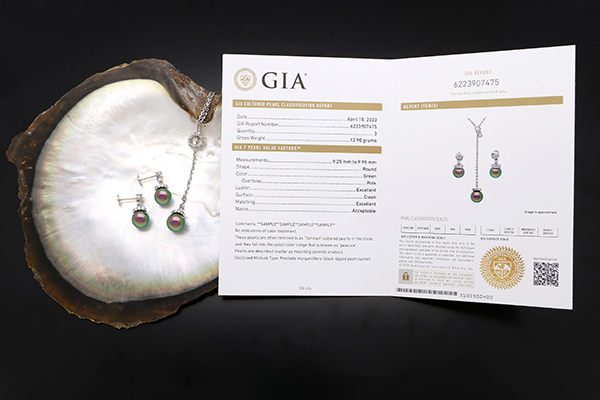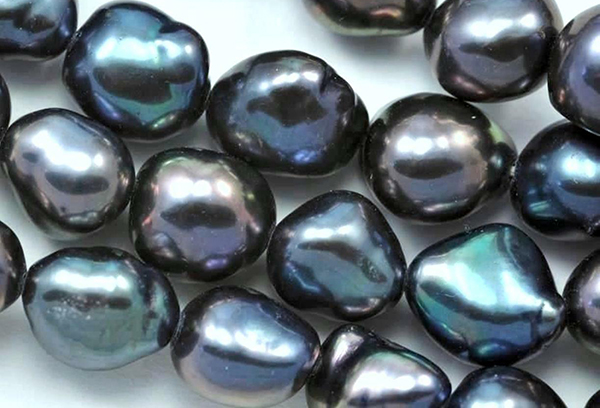
GIA (Gemological Institute of America) is adding a report comment employing the trade color term, Peacock- for designated colors of cultured pearls from the Pinctada margaritifera black-lipped pearl oyster, commonly known as Tahitian pearls.
GIA’s industry analysis yielded the identification of the color range that was commonly agreed upon within the pearl trade as peacock. The general description of that color range is: a body color with a hue that contains green, of mid-to-strong saturation and mid-to-dark tone, and with moderate or stronger overtone (usually pink, but may be other hues) or orient.
When a pearl, strand or jewelry item meets the carefully defined color parameters for Peacock, a comment that states: This pearl is often referred to as a Tahitian cultured pearl in the trade, and it falls into the select color range that is known as peacock (or a variation thereof) will be added to any GIA pearl report.
“This change comes about after a year of researching the historical and current use of the color term Peacock, as well as considered industry feedback,” said Tom Moses, executive vice president and chief laboratory and research officer. “Based on our industry findings and GIA’s mission to educate consumers to make informed purchasing decisions, adding this descriptive trade-term to report better serves consumers.”
There will be no additional fee for this change. To learn more about GIA’s pearl reports and services. Although GIA is best known for creating the 4Cs and the GIA International Diamond Grading System, it has been a leader in the identification and classification of natural and cultured pearls since 1949.

GIA has contributed to revising the U.S. Federal Trade Commission’s pearl guidelines for the jewelry industry and is responsible for working with major pearl companies globally to develop comprehensive standards for describing pearls. These standards are the GIA 7 Pearl Value Factors: Size, Shape, Color, Nacre, Luster, Surface and Matching.